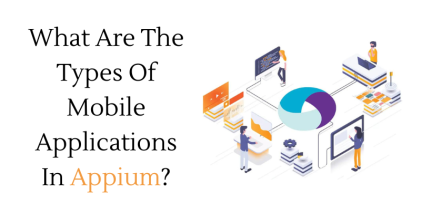The application is tested using Appium, an open-source mobile automation testing platform. To automate native and hybrid mobile apps, Sauce Labs created and provided support for it. It is a mobile cross-platform automation tool that allows running the same test across various platforms. Appium makes it simple to test several devices concurrently. In this blog, we have discussed the types of mobile applications in Appium, to know more, join Appium Training In Chennai offered by FITA Academy.
In today’s development market, mobile applications are highly sought-after. Individuals are currently turning their websites into mobile apps. Knowing about mobile software automation testing techniques and keeping up with new technology are therefore crucial. Appium is a mobile app testing tool that is popular right now in the field of mobile automation testing.
Appium can handle all native, hybrid, and web applications, as we just covered. Let’s examine them in greater detail:
1)Native Application
Software programs called native applications are created with a specific platform in mind. A particular software development kit is used to create these applications. Native apps, which may be downloaded from the Google Play Store or Apple’s App Store, are designed specifically for usage on a given device. They can use the device notification system and work offline.
Examples of native applications include Pinterest, Skype, Snapchat, and others.
2)Web Application
Web applications are websites that function through browsers rather than actual applications. These applications are created for a meagre cost, utilising HTML, CSS, and JavaScript. They don’t need a Software Development Kit (SDK) for developers to work with, unlike Android and iOS apps. Web apps are not made specifically for any one platform. The web applications don’t need to be installed because they operate on web browsers.
Examples of web applications include Flipkart, Ali Express, Twitter, and others.
3)Hybrid Application
A hybrid application combines features from native and web applications. These apps, web applications on the inside, are attainable by the App Store and can use device functions just like native apps do. Like the hybrid app, they are created using web development languages like CSS, HTML, and JavaScript, allowing them to operate on any platform.
Examples of hybrid applications include Basecamp, Instagram, OLA, and others.
Thus, different types of mobile applications in Appium are native, web, and hybrid. To learn more about the various applications, join Appium Online Training to learn at your own pace. Enrolling in the Best Training Institute In Chennai can give you the skills and knowledge to excel in this technology.
